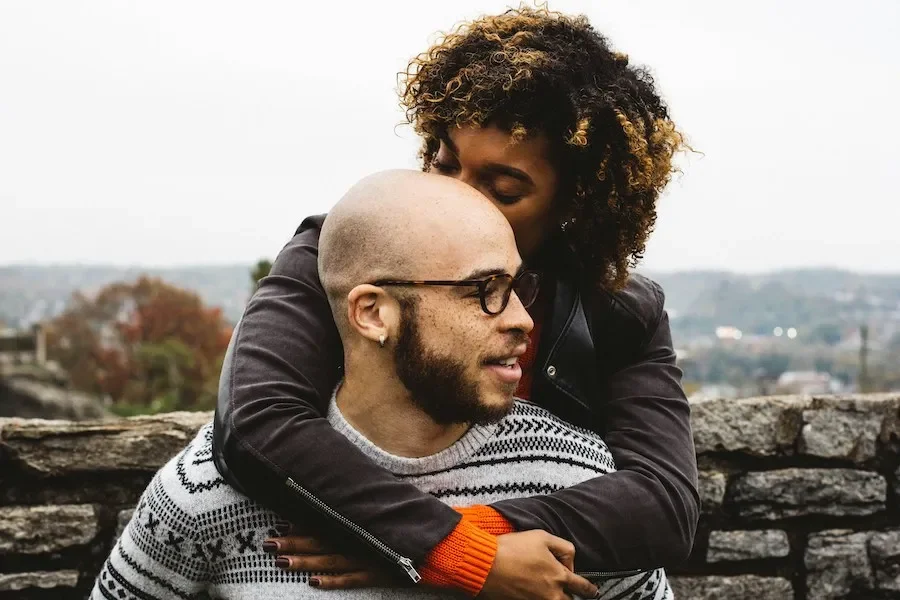What Is Attachment-Based Therapy For Couples?
When we enter a committed relationship with another person, we yearn for connection and a deep emotional bond that makes us feel safe, loved, accepted, and protected. We also want that connection to be reciprocated, giving our partner the same amount of love and care that we desire for ourselves. Yet, when we become overwhelmed with life—whether by work, kids, or other common life stressors—we can get trapped in negative patterns that feel impossible to escape. As the discord between us grows, so does our emotional distance.
For some, we have anxious, insecure tendencies that show up as clinginess, fear of rejection, or people-pleasing in our relationships. For others, we tend to be more avoidant and detached, eschewing emotional closeness when we fear our independence may be threatened. Rather than want to engage in deep conversations, we simply wish for the “bad” to stop and to feel at ease with our partner again.
Attachment-based therapy guides couples to explore and identify their attachment styles to gain a deeper insight into their individual and joint relationship patterns. Informed by our understanding of neuroplasticity—the brain’s ability to learn, rewire neural pathways, and create new experiences—attachment-based therapy helps usher in a new way of relating to our partners. Through the awareness we gain in therapy experientially, we can quiet the old pathways—formed from scarcity, fear, abandonment, rejection, and loss—and wire new pathways that foster lightness, joy, connection, confidence, and a sense of safety.
How Attachment-Based Couples Therapy Works
In attachment-based therapy for couples, we delve into your family of origin to better understand what each of you brings into the relationship and how it affects your dynamic. For example, we will explore your natural behavior when you feel insecure or uncertain—do you move towards your partner or away from them? Do you understand what motivates your thoughts and actions, or do these ingrained tendencies run the show? With newfound awareness and understanding of your attachment styles, you can gradually dismantle the old messages, reactions, and feelings that have kept you stuck and reconnect in your relationship with greater ease.
As an in-the-moment, experiential therapy, we also notice how your body responds when you’re activated by your partner, paying close attention to how those physical responses emotionally impact how you relate to each other. Using somatic and grounding techniques, you will learn how to be better attuned and become a secure base for each other. When you are grounded, you can remain calm, avoid reactivity, and stay fully present in the moment, even when challenging emotions are activated. Through repeated practice within therapy sessions, you will gain confidence in your shared ability to engage with each other with more empathy and understanding.
Who Can Benefit From Attachment-Based Psychotherapy?
Attachment-focused therapy can treat all types of issues that arise with adults in committed relationships, ranging from everyday concerns—such as raising young kids or maintaining work-life balance—to more serious problems, like working through betrayal, trauma, or grief. As a theory whose roots can be traced back to research conducted in the 1950s by Mary Ainsworth and Dr. John Bowlby, many of today’s popular forms of therapy use attachment-based principles as their basis for understanding human emotion, bonding, security, and motivation.
The attachment-oriented model takes a completely different approach than cognitively-based models such as Cognitive Behavioral Therapy, Acceptance and Commitment Therapy, and Rational Emotive Behavior Therapy. While techniques focusing on the intersection of thoughts, feelings, and behaviors can benefit couples in therapy, attachment theory peels back the complex layers of how we relate to others, the world, and ourselves. As a physiologically- and neurologically-centric approach, attachment-based therapy aids in rewiring the brain to create new opportunities for connection, repair, and security.
Therapy is a secure place to explore past hurts and insecurities, identify current wounds, and find a renewed sense of grounding. Incorporating attachment-based work into couples therapy is foundational to the nervous system, enabling couples to show up more authentically, not just in their relationship but in all aspects of life.
Why I Incorporate Attachment-Based Therapy For Adults Into My Work With Couples
When I first learned about attachment theory many years ago, something clicked. The more I learned about it, the more it resonated with me. Understanding that humans are wired for connection helped me make sense of human behavior in a way that no other theory had before. Sue Johnson said it best: “Being the ‘best you can be’ is really only possible when you are deeply connected to another. Splendid isolation is for planets, not people.” [1]
As attachment-based modalities continue to be developed and perfected in the mental health space, I have kept up with the latest theories, trends, and research. I have trained in most attachment-based models, including Emotionally Focused Therapy (EFT) and Advanced Experiential Dynamic Psychotherapy (AEDP). Attachment theory has become the lens through which I see myself, my loved ones, my brilliant clients, and even our country and the world.
In my work as a couples therapist, attachment-based approaches have provided my clients with the greatest benefit by far. For many years now, I have been committed to creating more security for and with my clients and see attachment-based work as a foundational living experience. I look forward to sharing this remarkable therapy with you.
Find Out How Working With An Attachment-Based Therapist Can Help You
With a deeper understanding of yourself, you can positively change how you relate to your partner. To learn how Attachment-Based Therapy with Live Oak Counseling can repair your marriage or committed relationship, please visit my contact page or call 203-561-1675 for more information.
[1] https://www.azquotes.com/author/49538-Sue_Johnson
Recent Posts
Attachment Based Therapy
in Boston, MA
867 Boylston St 5th Fl
Boston, MA 02116





